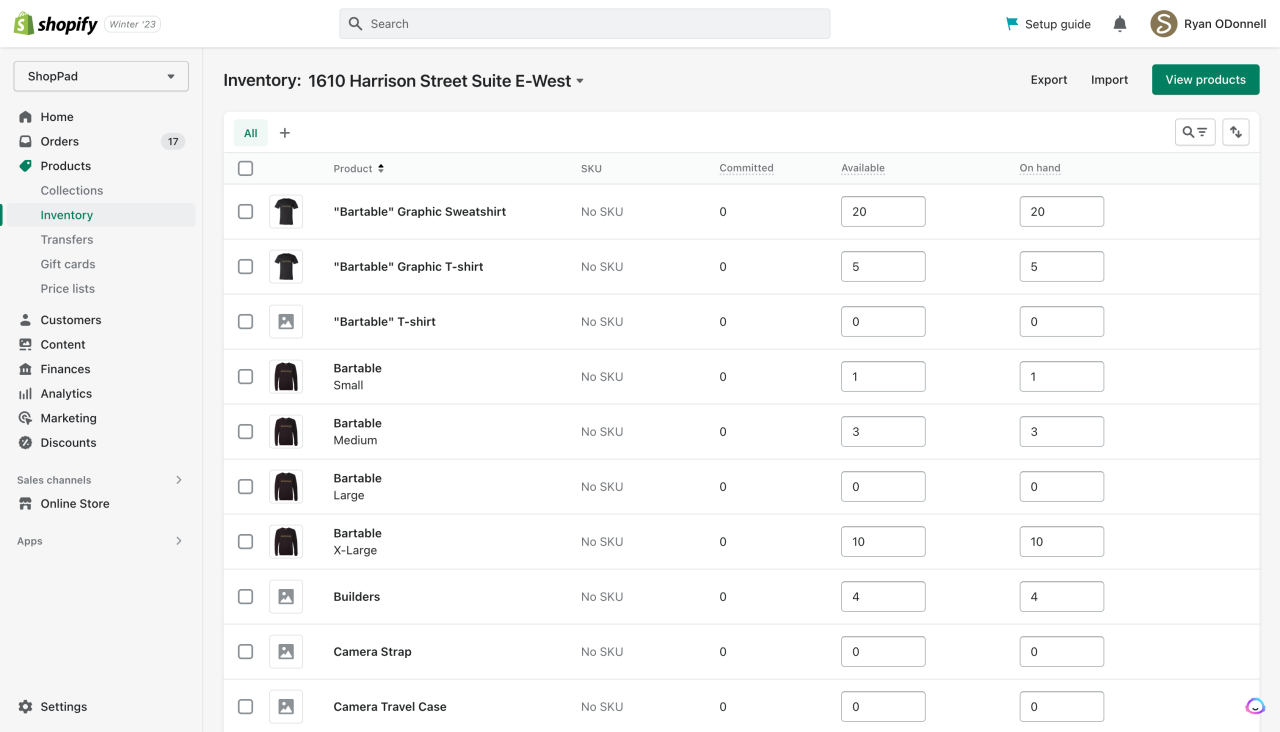Inventory Tracking for Ecommerce: BigCommerce, Shopify, and Beyond

As Inventory Tracking for Ecommerce: BigCommerce, Shopify, and Beyond takes center stage, this opening passage beckons readers into a world crafted with good knowledge, ensuring a reading experience that is both absorbing and distinctly original.
The importance of accurate inventory tracking in ecommerce cannot be overstated. It is the backbone of a successful online store, ensuring that products are available when customers want them. Poor inventory management can lead to stockouts, delayed shipments, and ultimately lost sales.
In this comprehensive guide, we will explore how different platforms like BigCommerce, Shopify, and others handle inventory tracking and the best practices to ensure smooth operations.
Overview of Inventory Tracking for Ecommerce

Inventory tracking is crucial for ecommerce businesses as it enables them to efficiently manage their stock levels, fulfill orders accurately, and prevent stockouts or overstocking. Accurate inventory tracking can benefit online stores by improving customer satisfaction, reducing operational costs, and increasing overall profitability.
On the other hand, poor inventory management can lead to lost sales, dissatisfied customers, and unnecessary expenses.
Inventory Tracking Features in BigCommerce
- Real-time inventory updates
- Customizable low stock alerts
- Inventory forecasting tools
- Multi-location inventory management
Inventory Tracking Features in Shopify
- Automatic inventory adjustments
- Inventory tracking by SKU
- Inventory reporting and analytics
- Inventory level notifications
Beyond BigCommerce and Shopify: Other Ecommerce Platforms
- WooCommerce: Flexible inventory management with various plugins
- Magento: Advanced inventory tracking with multi-store capabilities
Integrating Inventory Tracking with Order Management Systems
Integrating inventory tracking with order management systems streamlines the process of managing orders, tracking inventory levels, and updating stock information. This integration can lead to improved order accuracy, reduced fulfillment times, and better overall customer satisfaction.
Automation and AI in Inventory Tracking
Automation and AI play a significant role in modern inventory tracking processes by enabling predictive demand forecasting, preventing stockouts, and optimizing inventory levels. AI-powered solutions can analyze data patterns, identify trends, and make informed inventory management decisions, ultimately enhancing the efficiency of ecommerce operations.
Closing Notes
In conclusion, mastering inventory tracking for ecommerce is essential for the success of any online store. By understanding the features and capabilities of platforms like BigCommerce and Shopify, as well as exploring options beyond them, businesses can make informed decisions to optimize their inventory management.
Embracing automation, AI, and integrating inventory tracking with order management systems can further enhance efficiency and customer satisfaction. With the right tools and strategies in place, businesses can streamline operations and stay ahead in the competitive world of ecommerce.
Frequently Asked Questions
What are the benefits of integrating inventory tracking with order management systems?
Integrating inventory tracking with order management systems helps businesses maintain accurate stock levels, prevent stockouts, and streamline order fulfillment processes. This integration ensures that inventory data is always up-to-date and improves overall operational efficiency.
How does AI help optimize inventory levels in ecommerce?
AI can analyze historical sales data, market trends, and other factors to predict demand accurately. By forecasting demand, AI-powered systems can help businesses optimize inventory levels, reduce excess stock, and minimize the risk of stockouts.

